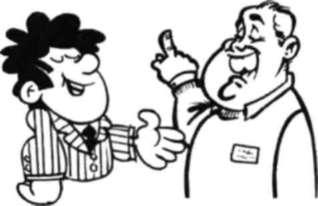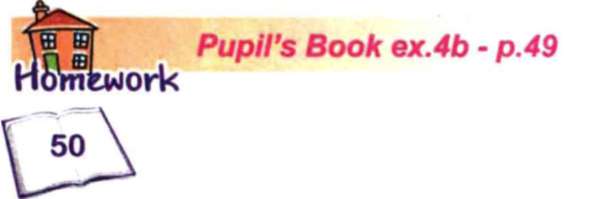|
|
|
|
|
|
|
|
|
|
|
|
|
b) Speak about your favourite book characters and say why you like them.
c) Say what book characters you do not like and why.
7. Work in pairs. Guess and say what book characters we can describe as:
a) brave and strong, clever and honest, fond of nature, not afraid of wild animals, a true friend of his animal friends, ready to save his animal friends;
b) lively and brave, naughty and lazy, a true friend, full of ideas, fond of adventures;
c) lazy and naughty, dirty and untidy, does not want to go to school, wants to play all day long, likes to boast, silly but kind;
d) beautiful and clever, tidy and clean, kind and hard-working, ready to help other people;
e) strict and kind, fond of children, clever and full of wonderful ideas, can do magic things, can make children happy.
8. Comment on the joke.
|
|
|
|
|
|
|
|

|
A man entered a book-shop saying, "I'd like to have the book entitled How To Become a Polyglot in Ten Days". "Science-fiction is in the next department, please," answered the shop-assistant.
|
|
|
|
|
|
|
|
9. Speak about reading books in groups. Make use of the questions.
1. Are you fond of reading?
2. What books do you prefer to read? (Fiction, detective stories, adventure books, travel books, science fiction or historical novels.)
3. What books do you read and study in your literature class?
4. What books have you read in English?
5. Is it difficult for you to read books in English?
6. What Ukrainian and foreign classics have you read?
7. Which English and American writers do you know?
8. Is there a book that you've read several times?
9. Do people make you read books?
10. Do you put aside a book that seems dull to you?
11. Do you always read a book to the end?
12. Can you name a book which you read from the very beginning to the end (from cover to cover) without putting it down?
13. Who is your favourite writer?
14. What do you like in your favourite book characters?
15. What can we learn from different kinds of books?
|
|
|
|
|
|
|
|

|
|
|
|
|
|
|
|
|
|
|
|

